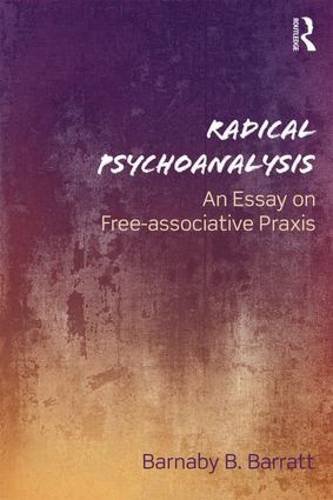

Most ebook files are in PDF format, so you can easily read them using various software such as Foxit Reader or directly on the Google Chrome browser.
Some ebook files are released by publishers in other formats such as .awz, .mobi, .epub, .fb2, etc. You may need to install specific software to read these formats on mobile/PC, such as Calibre.
Please read the tutorial at this link: https://ebookbell.com/faq
We offer FREE conversion to the popular formats you request; however, this may take some time. Therefore, right after payment, please email us, and we will try to provide the service as quickly as possible.
For some exceptional file formats or broken links (if any), please refrain from opening any disputes. Instead, email us first, and we will try to assist within a maximum of 6 hours.
EbookBell Team

4.1
40 reviewsOnly by the method of free-association could Sigmund Freud have demonstrated how human consciousness is formed by the repression of thoughts and feelings that we consider dangerous. Yet today most therapists ignore this truth about our psychic life. This book offers a critique of the many brands of contemporary psychoanalysis and psychotherapy that have forgotten Freud's revolutionary discovery.
Barnaby B. Barratt offers a fresh and compelling vision of the structure and function of the human psyche, building on the pioneering work of theorists such as André Green and Jean Laplanche, as well as contemporary deconstruction, feminism, and liberation philosophy. He explores how ‘drive’ or desire operates dynamically between our biological body and our mental representations of ourselves, of others, and of the world we inhabit. This dynamic vision not only demonstrates how the only authentic freedom from our internal imprisonments comes through free-associative praxis, it also shows the extent to which other models of psychoanalysis (such as ego-psychology, object-relations, self-psychology and interpersonal-relations) tend to stray disastrously from Freud's original and revolutionary insights. This is a vision that understands the central issues that imprison our psychic lives - the way in which the reflections of consciousness are based on the repression of our innermost desires, the way in which our erotic vitality is so often repudiated, and the way in which our socialization oppressively stifles our human spirit.
Radical Psychoanalysis restores to the discipline of psychoanalysis the revolutionary impetus that has so often been lost. It will be essential reading for psychoanalysts, psychoanalytic psychotherapists, mental health practitioners and students and academics with an interest in the history of psychoanalysis.